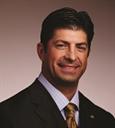
Jordan P. Grossman, DPM, FACFAS
ACFAS President
For sports fans, you’ll recognize the infamous Are we talking about practice? rant by former NBA superstar Allen Iverson when he was questioned by the media about skipping practice. While we all may not be superstars in the NBA, it is clearly evident that technical exercises are honed with repetition or “practice.” My personal experience of being a foot and ankle surgeon for 17 years has helped me appreciate that learning curves exist for a reason. That is, typically, the more we do, the better we get. (My wife may argue that despite repeated encouragement and practice, I am still a novice at loading the dishwasher.)
Not long ago, my mentor and residency director Alan Catanzariti sent me an insightful book to read: Outliers, The Story of Success, by Malcolm Gladwell. In his book, Gladwell examines the factors that contribute to high levels of success, which include both talent and preparation. He cites his findings through research and several real-people examples. From The Beatles to basketball and hockey players, to musicians and chess players, and even master criminals, Gladwell says the most common variable distinguishing one performer from another is the number of hours they practice their individual skill.
In fact, Gladwell even quotes neurologist Daniel Levitin, who stated, “The emerging picture from such studies is that ten thousand hours of practice are required to achieve the level of mastery associated with being a world-class expert — in anything.”
As proven leaders in foot and ankle surgery, we always strive to achieve a “world class” level of expertise. We should strive to perfect our cognitive and psychomotor skills to continue being the best foot and ankle surgeons we can be for our patients, the profession, and for ourselves individually.
According to Gladwell, practice does make “perfect,” and our College offers us numerous opportunities every year to help us “practice” and improve our technical skills through countless courses, JFAS articles, podcasts, and even hallway conversations with peers.
All of these practice opportunities are taught or led by the “the best and the brightest,” often at state-of-the-art facilities. And our courses offer ample time for didactics, fireside chats and more importantly, hands-on training under the attentive supervision of the faculty.
This year’s stellar educational lineup included our arthroscopy courses, a flatfoot course, and the never-pleasant-but-always-challenging topic of surgical complications. In addition, the College debuted the first comprehensive surgical skills course for total ankle replacement, a very exciting opportunity for members to gain hands-on training with multiple available implants. This course was in development for nearly
two years and I’m proud to say that this is the first ACFAS course focused entirely on this contemporary technology.
In this issue you’ll read about our “ACFAS Coming to You” series of regional meetings and, of course, our flagship event, the 2014 Annual Scientific Conference, just to name a few.
Practice? Practice does make perfect. I encourage everyone to take advantage of the College’s vast educational offerings — be it in-person, in-print, or online!
